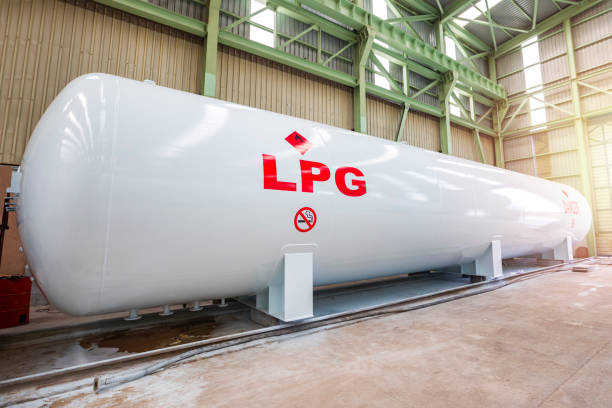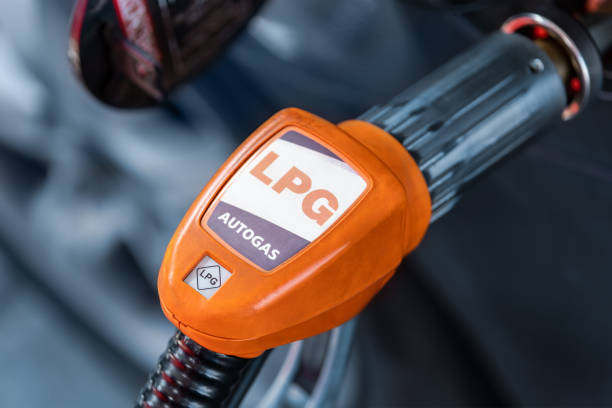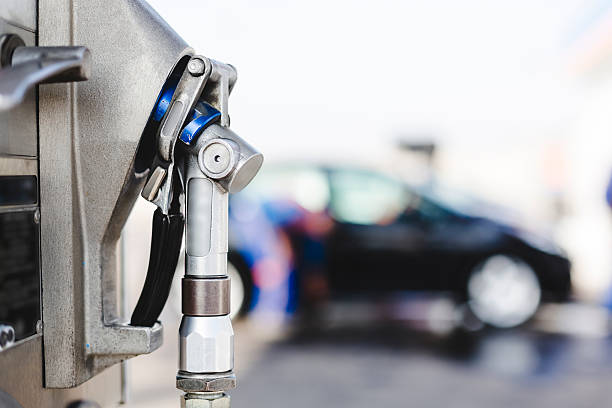
At Hudson Oil Corporation, Liquefied Petroleum Gas (LPG) is a core offering in our portfolio of refined petroleum products. Recognized globally for its versatility, high energy content, and clean-burning properties, LPG plays a vital role across residential, commercial, industrial, and automotive sectors.
Liquefied Petroleum Gas (LPG) refers to a family of flammable hydrocarbon gases, primarily Propane (C₃H₈) and Butane (C₄H₁₀), which are liquefied through pressurization for ease of storage and transport. It may also contain small quantities of Propylene (C₃H₆), Butylene (C₄H₈), Methane (CH₄), and Ethane (C₂H₆), depending on its source and intended use.
LPG is commonly referred to as:
Propane in colder climates
Butane in warmer regions
Autogas when used as a fuel for vehicles
To ensure safety, particularly in leak detection, an odorant such as ethanethiol (CH₃CH₂SH) is added. International quality standards such as EN 589 in Europe define the specifications for automotive-grade LPG, including HD-5, which limits the propylene content to 5%.
LPG is primarily sourced through:
Petroleum refining
Processing of wet natural gas
It is often produced as a byproduct during the extraction of crude oil or the processing of natural gas, making it a cost-effective fuel solution with wide commercial and industrial appeal.

1. Domestic and Commercial Use
LPG is widely used in households for:
Cooking
Water heating
Space heating
Its portability and reliability make it a preferred energy source in rural or off-grid areas, especially where piped natural gas is unavailable.
2. Industrial and Power Generation
LPG powers industrial boilers, furnaces, and combined heat and power (CHP) systems. It plays an essential role in manufacturing, agriculture, and construction as a clean-burning and efficient fuel.
3. Automotive Fuel (Autogas)
LPG is used in vehicles as autogas, providing a lower-emission alternative to gasoline or diesel. It reduces CO₂, NOₓ, and particulate matter emissions and is adopted in many countries as part of urban clean transport policies.
4. Chemical Industry Feedstock
LPG is a valuable petrochemical feedstock, used in the synthesis of:
Ethylene (C₂H₄)
Propylene (C₃H₆)
Butene (C₄H₈)
Acrylic acid (CH₂=CHCOOH)
These are essential building blocks for plastics, synthetic rubbers, and specialty chemicals.
High Energy Content: ~46.1 MJ/kg, exceeding the energy output of gasoline and fuel oil by weight.
Clean Combustion: Produces minimal soot, low sulfur emissions, and no ground or water contamination.
Flexibility: Easily stored and transported in pressurized vessels, usable in portable or permanent installations.
Reliable Backup: Complements renewable power sources like solar and wind by providing consistent energy during intermittency.
In combined systems, LPG enhances energy security without requiring expensive battery storage.
Though LPG is considered safe when properly handled, awareness is critical due to its physical properties:
Heavier than air: LPG can accumulate in low-lying areas, such as basements.
Explosion Risk: May ignite if an LPG-air mixture is within the explosive range and exposed to an ignition source.
Asphyxiation Hazard: Displaces oxygen in confined spaces, posing a suffocation risk.
To mitigate risks, strict handling protocols, proper ventilation, and leak detection systems are essential in both domestic and industrial environments.

Currently accounting for about 3% of global energy consumption, LPG plays a vital role in:
Reducing dependency on more polluting fuels like coal and kerosene
Supporting cleaner urban transport through autogas adoption
Enabling access to modern energy in underserved rural populations
As global efforts intensify to transition toward cleaner and decentralized energy systems, LPG is emerging as a bridge fuel, offering low-carbon benefits and infrastructure compatibility with renewable energy systems.
With a strong supply chain, compliance with global quality standards, and deep experience in the energy sector, Hudson Oil Corporation is your reliable partner for:
Bulk LPG supply for industrial and domestic use
Custom autogas distribution programs
Integrated fuel solutions for off-grid and hybrid systems
Safe and scalable LPG logistics infrastructure